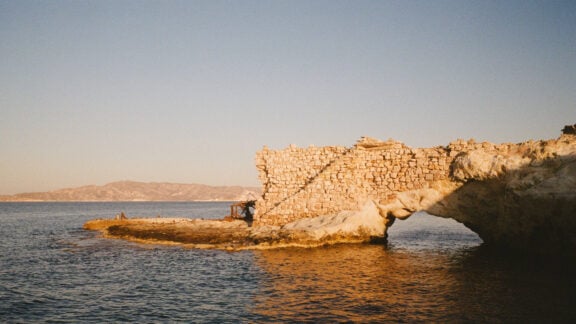Greece has just converted almost 300 beaches making them wheelchair friendly through the use of the Seatrac system, a Greek invention allows unassisted sea access to people with mobility issues.
It is an innovative, technological assistant that promotes autonomy, quality and wellness in everyday life.
People can now drive into the sea on a chair using a remote control, gliding into the water where they can sit or swim if capable.
Returning is just as easy, returning to the chair and gliding back up the beach.
The Ministry of Tourism want beaches to be fully accessible, alongside Seatrac, other essential facilities like parking, bathroom/changing facilities, ramps and corridors to sun loungers, and refreshment bars will/have been introduced.

During a press conference in April, these officials said that “people with disabilities and people with limited mobility are given the opportunity to participate in beach activities with family and friends, enhancing the quality of life for everyone.”
“Equal access to the sea is an inalienable human right,” said Tourism Minister Vassilis Kikilias.
Users of Seatrac have provided positive feedback on the innovative creation.
“I am so glad, I don’t remember going for a swim the years before Seatrac,” said Seatrac user Ioanna.
“Thank you for giving us the opportunity to enjoy both the fun and healing power of the sea,” said another user Apostolos.
Much praise has come to Greece, but it leaves questions over Australia’s efforts.
Travel columnist Lee Tulloch from The Age says Greece is making beaches accessible, why isn’t Australia?
According to Tulloch, one in six Australians are living with a disability. That’s 4.6 million people. 450,000 are blind or have vision issues, more than 30,000 have muscular sclerosis, over 40,000 have muscular dystrophy and 34,000 have cerebral palsy.
For non-visible disabilities, about 30-40 percent of Aussies are neurodivergent, including autism.
Meanwhile, 5.5 million people have long-term health conditions.
With such a high number, and Australia a leading country, it may be time they also look into better accessibility to the beach for millions of its population, something Greece is leading the way in.









